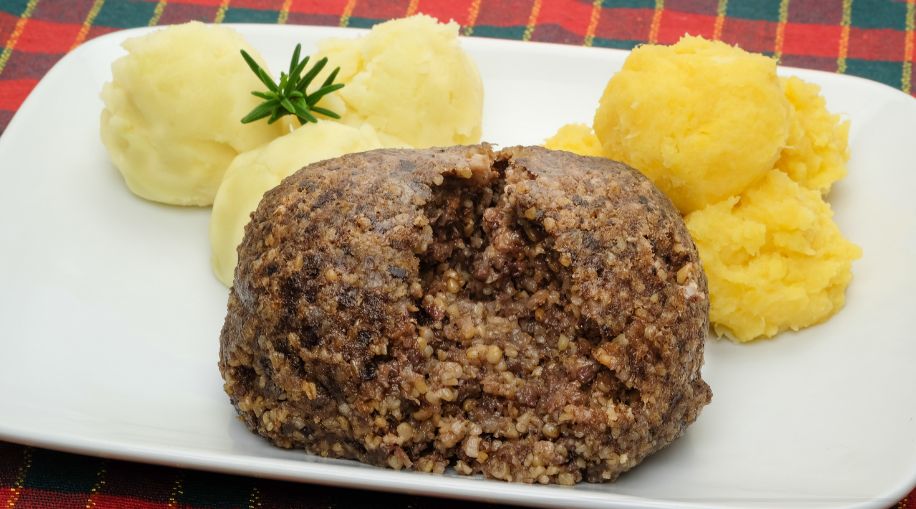Culinary Caution
One of the most exciting things about traveling through Europe is enjoying the rich array of food experiences. However, it's important to be mindful of certain foods that can affect your health and travel enjoyment. There are some foods you may want to avoid during your trip to make sure you feel your best and avoid any unpleasant side effects.
10 Foods to Avoid in Europe
1. Cruise Buffets: Food Left Out for Too Long
Cruise ships are known for their extensive buffets, which often feature a wide selection of different foods. However, if the food has been left out for an extended period–particularly foods like shrimp, crab and mussels–it’s best to skip these options if they don't look fresh. Always opt for freshly cooked seafood or items prepared in front of you to avoid food poisoning while cruising.
2. All-Inclusive Resorts: Salads and Unwashed Produce
Many all-inclusive resorts throughout Europe offer salads and fresh produce at every meal. While these can be a healthy choice, unwashed or improperly handled fruits and vegetables can pose a risk for foodborne illnesses. Instead, opt for cooked vegetables or fruits that you can peel yourself, like bananas or oranges.
3. UK Pubs: Fried Foods and Heavily Processed Meat
Pub culture in the UK is famous for its comfort foods like fish and chips, pies and sausages. They are also well-known for their full English breakfasts, which can be heavy and present a ton of food. These deep-fried and heavily processed foods can leave you feeling sluggish and bloated.
Meats like sausage rolls or pork pies may also contain additives and preservatives that can upset your stomach. While there is nothing wrong with enjoying the wonderful comfort foods that the UK has to offer, make sure to enjoy them in moderation.
4. Paris: Unpasteurized Cheeses
Unpasteurized cheeses, common in traditional French markets, can carry bacteria that can lead to foodborne illnesses. Stick to pasteurized cheese options, such as cottage cheese, mozzarella, ricotta or halloumi. This will avoid any risk of getting sick.
5. Portugal: Undercooked Meat
Portugal offers an array of unique cuisine experiences that are unmissable. However, undercooked or rare meats, which are popular in local eateries in the country, can pose a significant risk for food poisoning. If you’re going to eat meat, ensure that it is well-cooked to reduce the risk of bacterial contamination. This is especially important when trying meats at street markets or local restaurants.
6. Buffets in General
If you’re going to Europe and are excited to eat your way through the countries, we recommend avoiding buffets in general. Not only are buffets not the best representation of a country’s unique cuisines, but these foods have most likely been sitting out and can spoil if they aren’t kept at the right temperature.
7. Paris: Raw Oysters
While Paris offers exquisite seafood, raw oysters should be approached with caution and enjoyed in moderation, especially during warmer months. Oysters are notorious for harboring harmful bacteria that can lead to serious gastrointestinal issues. Unless you're at a high-end establishment known for its rigorous food safety measures, it’s safer to avoid raw oysters and opt for cooked seafood dishes instead.
8. Haggis (Scotland)
Haggis is a traditional Scottish dish made from sheep organs, oatmeal, and spices. It is cooked in a sheep's stomach. Many people find it hard to try due to its ingredients. If you’re not feeling adventurous, it might be best to skip it.
9. Portugal: Bacalhau (Cod)
If you’re not hugely into salty fish flavors, you might want to pass on the Bacalhau à Brás. This Portuguese speciality consists of shredded salted cod mixed with scrambled eggs and fried potatoes. The salty flavor of the cod has been known to be pretty strong, especially for those who have never had it before.
In addition, the heavy combination of eggs and fried potatoes may sit heavily on the stomach, making it something to avoid if you prefer lighter meals. Stomach issues are the last thing you want during your European travels.
10. All-Inclusive Resorts: Desserts
At all-inclusive resorts, the dessert table can be incredibly tempting, but it’s worth being cautious with cream-filled pastries or desserts that have been sitting out for too long. Desserts made with eggs, milk or cream can spoil quickly, leading to an increased risk of food poisoning.
In addition, even if the food isn’t spoiled, filling up on overly sweet desserts can leave you feeling sluggish and sick. If you're craving something sweet, stick to fresh fruit or simpler desserts like biscuits or tarts that don’t require refrigeration.
Read on to learn about some foods that may trigger migraines.
